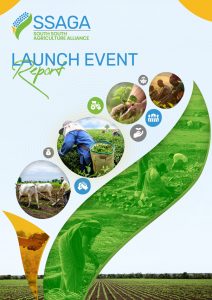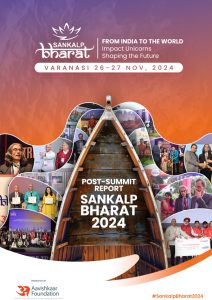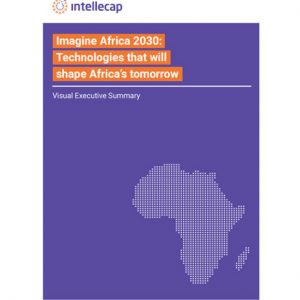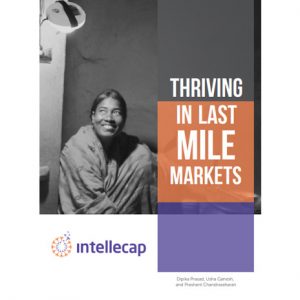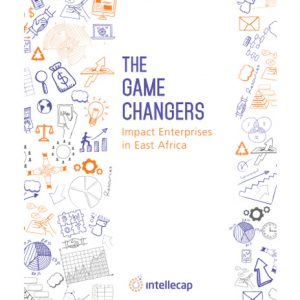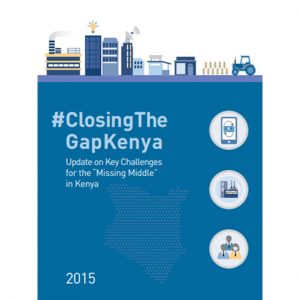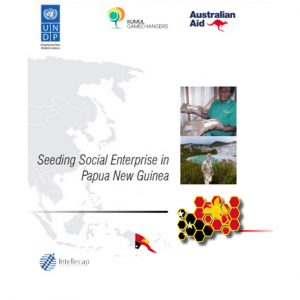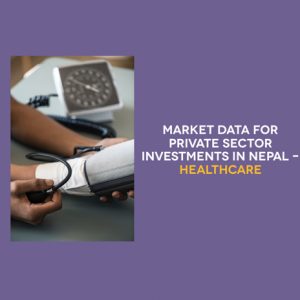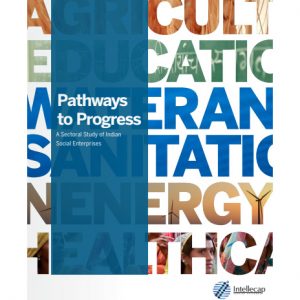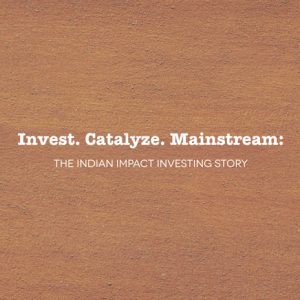TRENDING
-
SSAGA – Benefitting small-scale farmers by fostering innovations and collaboration across the Global South
Published: March, 2025 -
Sankalp Bharat 2024-Post Summit Report
Published: March, 2025 -
Reorienting The Private Sector To Enable Climate-smart Agricultural Solutions To Address Gender Inequalities
Published: February, 2025
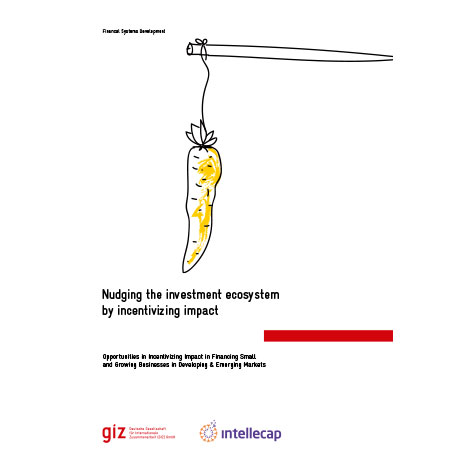
Nudging The Investment Ecosystem By Incentivizing Impact
PUBLISHED: June, 2018
Opportunities in Incentivizing Impact in Financing Small and Growing Businesses in Developing & Emerging Markets
This paper is a summary of fresh ideas on how to channel more capital into impact investing and incentivize impact creation. Building on insights generated by experts at the BMZ hosted conference Financing Global Development – Leveraging Impact Investing for the SDGs, the paper furthers the conversation on Impact Measurement and Management, IMM 2.0, through brainstorming practical ideas and viewpoints in the impact investing value chain: those who provide capital, those who manage it, and those who receive it. This included close to 50 stakeholders, including fund managers, DFIs, intermediaries, entrepreneurs, governments, CSOs and others.
The discussion, conducted in the form of a ‘design lab’ by Deutsche Gesellschaft für Internationale Zusammenarbeit (GIZ) GmbH, Intellecap, and the Swiss Agency for Development and Cooperation (SDC), aims to start a conversation on how to maximize impact by channeling capital into small and growing businesses (SGBs) as a way to expedite achievement of SDGs (Sustainable Development Goals). During the session, industry leaders like FMO, Vox Capital, and Roots of Impact had shared case studies of good practices in incentivizing impact along the investment chain. This formed the basis of brainstorming on development of new ideas on innovative instruments that could nudge the ecosystem towards more actively pursuing and scaling impact.
The result is an analysis of the barriers in the impact investment value chain highlighted during the stakeholder conversations, and key insights on how to overcome them (for example, the need for transparency, standardization, leadership, etc.). In addition, the workshop collated a list of potential ‘wild ideas’ to like impact currency, impact rewards, impact index, online market places for impact auctioning, and a give-back distribution impact support system, designed to incentivize increased levels of investment along the value chain. The practical approaches suggested by stakeholders fit well with the existing impact measurement and monitoring frameworks like GIIN’s IRIS and Intellecap’s PRISM and hold the potential to guide impact capital more efficiently by leveraging good practices.

The Financial Lives of Government Employees – Potential of Digital Finance in Sierra Leone
PUBLISHED: July, 2018
This report documents findings from research on the financial lives of government employees in Sierra Leone, commissioned by the Government to People Payments Project – Building Digital Ecosystem funded by USAID. Intellecap supported UNCDF, Government of Sierra Leone and Bank of Sierra Leone for conducting the research.
There are 80,000 government employees in Sierra Leone who receive salaries digitally in their bank accounts. Insights about their financial lives can help build a viable business case for DFS to expand access to a wide range of financial services for underserved communities in Sierra Leone. Such insights can inform strategies and use cases that the UNCDF and the Government of Sierra Leone can develop to promote DFS in the country. The National Strategy for Financial Inclusion 2017 – 2020 also refers to the need to identify and digitize use cases that will lead to habitual usage, and achieve Sierra Leone’s commitments to the ‘Better Than Cash Alliance’.
Recognizing the need and opportunity, UNCDF supported the Financial Lives Survey of government employees who receive their salaries digitally in Sierra Leone. Intellecap designed the survey to understand how government employees utilize salaries transferred into their bank accounts, their awareness of and access to DFS, avenues to use them and their perceptions about financial services and digital financial transactions. This report contains insights from the survey about potential customers of DFS and recommendations on use cases that could be piloted as an initial step to improve DFS adoption in Sierra Leone.
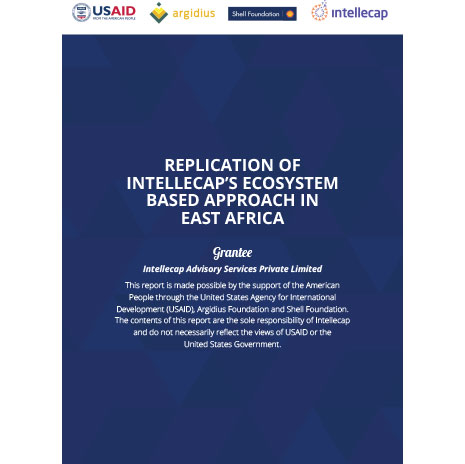
Replication of Intellecap’s Ecosystem Based Approach in East Africa
PUBLISHED: July, 2018
Intellecap has sought to replicate its ecosystem-based approach to East Africa by bringing
together capital, knowledge and networks to support SGBs at two levels: (i) provide direct support
to SGBs in the form of acceleration, fund-raising, technical assistance, innovation transfer, and
market linkages, and (ii) discover and engage critical ecosystem players such as corporations
(both local and international), accelerators, other development sector players in supporting SGBs.
In the three-year period since the launch of our initiative to replicate our ecosystem-based
approach for accelerating entrepreneurship support to SGBs in East Africa, we have received
generous support not only from our funders, but also from a number of local and international stakeholders such as development institutions, private sector entities, and industry associations.
Over the last year, we have replicated our advocacy platform (Sankalp), angel investment network
(I3N) advisory services (consulting & investment banking), virtual incubation platform
(StartupWave) and impact measurement platform (PRISM) as envisaged at the beginning of our
programmatic support. The development and adaptation of StartupWave for East Africa has
resulted in over 450 sign-ups for our early stage enterprise support activities and partnerships with
over 30 incubators / accelerators. Similarly, PRISM, our impact measurement platform, has
garnered interest from a wide variety of players to measure the impact of their programs.
All Publications
-
Imagine Africa 2030: Technologies that will shape Africa’s tomorrow
PUBLISHED: February, 2017Tags: Technology, InnovationRegion: AfricaREAD MORE -
Thriving in Last Mile Markets
PUBLISHED: April, 2016Tags: Financial Services, Energy, Health, Agriculture, Livelihoods, EntrepreneurshipRegion: Asia, AfricaREAD MORE -
The Game Changers – Impact Enterprises in East Africa
PUBLISHED: December, 2015Tags: EntrepreneurshipRegion: AfricaREAD MORE -
Seeding Social Enterprise in Papua New Guinea
PUBLISHED: September, 2015Tags: EntrepreneurshipRegion: AfricaREAD MORE -
Market Data for Private Sector Investments in Nepal – Education
PUBLISHED: September, 2014Tags: Entrepreneurship, LivelihoodsRegion: AsiaREAD MORE -
Market Data for Private Sector Investments in Nepal – Healthcare
PUBLISHED: September, 2014Tags: Health, EntrepreneurshipRegion: AsiaREAD MORE -
Pathways to progress
PUBLISHED: August, 2013Tags: Entrepreneurship, Health, Agriculture, Financial Services, Livelihoods, Energy, Strategy AlliancesRegion: AsiaREAD MORE -
Invest. Catalyze. Mainstream: The Indian Impact Investing Story
PUBLISHED: August, 2013Tags: Financial ServicesRegion: AsiaREAD MORE -
IntelleCash-Arohan: Leading the Way in Consolidating the Microfinance Industry in India
PUBLISHED: October, 2012Tags: Financial Services, LivelihoodsRegion: AsiaREAD MORE
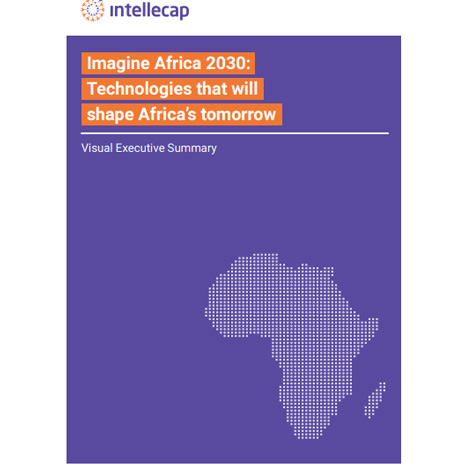
Imagine Africa 2030: Technologies that will shape Africa’s tomorrow
PUBLISHED: February, 2017
The report highlights our vision of how emerging technologies can trigger a set of big shifts to help Africa leapfrog and combat its development challenges. Our research indicates that although early evidence of these shifts is already visible signaling the beginning of Africa’s innovation journey, significant whitespaces currently exist. The report identifies these key innovation whitespaces based on scanning of 100 technology use cases in Africa. It concludes by identifying a set of opportunities these whitespaces present for key stakeholders to help nurture a vibrant and high impact technology innovation ecosystem and in the process, become a part of Africa’s journey towards economic transformation. The following visuals help stitch together and narrate the key findings, insights and takeaways from the report.
View the entire report in this Microsite:
http://www.intellecap.com/imagine-the-future/africa
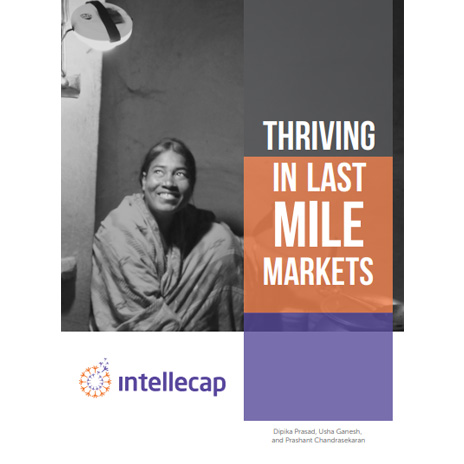
Thriving in Last Mile Markets
PUBLISHED: April, 2016
As firms seek new avenues for growth in emerging markets – strategies for tapping into “new
and underserved” markets have been on the radar of almost every major mass-market focused
firm. Comprising both urban slums and rural areas, these markets are exciting to firms, and for
good reason.
Approximately 4.5 billion low-income people globally represent an annual
purchasing capacity of US$ 5 trillion (PPP), with India, East Africa and South East Asia
accounting for a sizable chunk of this market.
Popularly called ’last-mile markets‘, this report sheds light on their preferences and a blue print for thriving in these.
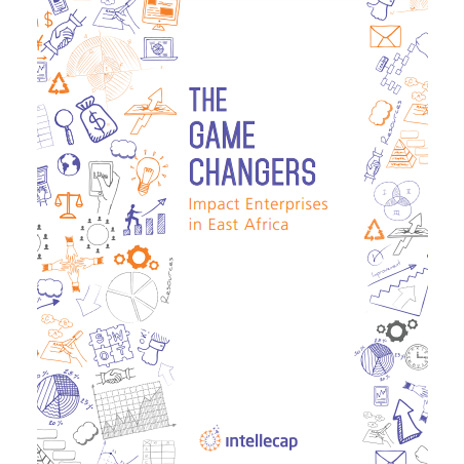
The Game Changers – Impact Enterprises in East Africa
PUBLISHED: December, 2015
East Africa is expected to be the fastest growing region in the entire African sub-continent in 2016 and consequently, over the last decade, the region has seen a splurge in foreign direct investment and entrepreneurial activity.
Intellecap’s research in East Africa finds that impact enterprises engage with the low income population across three levers: Access, Ability, and Knowledge. Access enterprises provide critical products and services among the low income and underserved population. Ability enterprises increase their capacity to earn higher incomes through skilling or by engaging with them as partners. Lastly, Knowledge enterprises build awareness and markets, and encourage behavior change.
This first of a kind report provides detailed cluster analysis of 398 impact enterprises across the three levers in five East African countries. The report is written and presented to be useful to all development sector stakeholders, with specific insights to inform decisions of investors, enterprises, and non-financial support providers across East Africa.

Closing The Gap – Kenya
PUBLISHED: October, 2015
The Dutch Good Growth Fund (DGGF) is an initiative of the Dutch Ministry of Foreign Affairs.
Many small and medium-sized enterprises in developing countries have difficulty securing
the financial backing they need to grow. This group of businesses is often referred as ‘the
missing middle’, where they have outgrown micro financing but do not yet have access to
regular financial services. To increase local SMEs’ access to finance, the DGGF fund ‘Local
SMEs’ invests in investment funds that in turn invest in businesses in the DGGF countries.
The DGGF enlarges its impact by investing in intermediary funds that are better placed to
reach local SMEs. This part of the DGGF is a ‘fund of funds’: it is building up a portfolio of
intermediary funds that are catalysts for local economic growth. Greater access to finance
enables local SMEs to grow and strengthens the financial sector in low and middle-income
countries. The DGGF has set specific targets for intermediary funds that invest in young or
female entrepreneurs and entrepreneurs in fragile states.
The DGGF part Investment funds local SMEs is managed by a consortium of Triple Jump BV
and PwC.
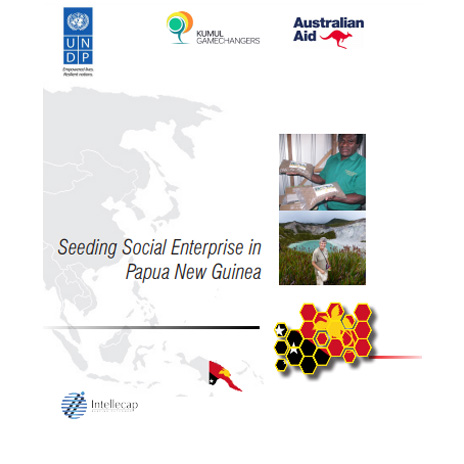
Seeding Social Enterprise in Papua New Guinea
PUBLISHED: September, 2015
This report documents findings from research on the emerging impact enteprise landscape in Papua New Guinea. This report was commissioned by UNDP and compiled by Intellecap (a globally-recognised specialist research group that specialises in SME, entrepreneurship and start-ups) titled Seeding Social Enterprise in Papua New Guinea. The report sets out the challenges and opportunities for SMEs in six key sectors of the economy that have a major impact on the lives of the majority of the population – agriculture, energy, health care, finance, education and water and sanitation.
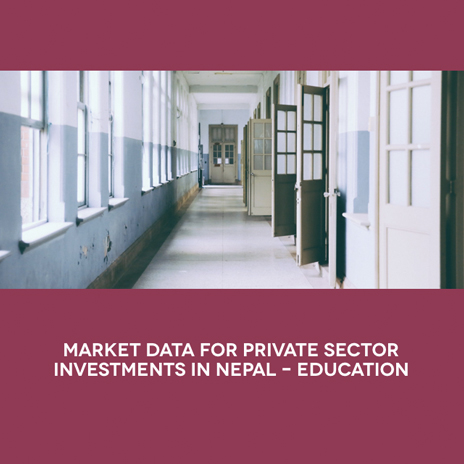
Market Data for Private Sector Investments in Nepal – Education
PUBLISHED: September, 2014
This report is an effort of Dolma Development Fund (DDF) to analyse market data and trends across six
sectors in Nepal in order to identify attractive investment opportunities for private equity and venture
capital investors.
We wish to thank all the private enterprises and government agencies who gave us their time and shared
information, giving us a detailed picture of the business and investment environment in Nepal. We also
place on record our sincere thanks to the international development agencies active in the country for
providing us deep sector insights and sharing their enthusiasm to develop an investment-friendly
ecosystem in Nepal.
Our special thanks to Suzanna Abspoel from Advance Consulting for providing insights and guidance on
the sectors reports and the European resources available for Nepal. We would also like to thank the
Intellecap investment banking practice and investment managers from the Aavishkaar Frontier Fund for
sharing their experiences in early stage equity investments.
Finally, our deepest appreciation to Dipika Prasad, Manisha Singh, Saurabh Prakash Sinha, Nisha Dutt,
Raghavendra Badaskar and the entire consulting team at Intellecap for making this report a success.
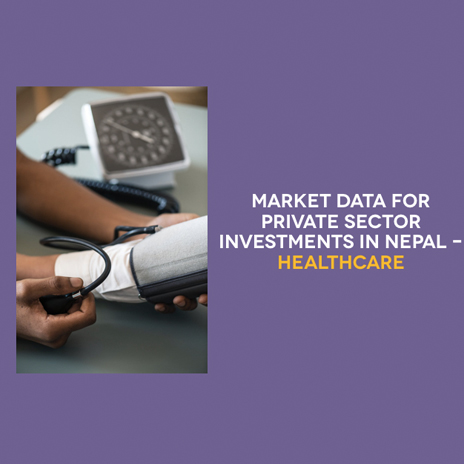
Market Data for Private Sector Investments in Nepal – Healthcare
PUBLISHED: September, 2014
This report is an effort of Dolma Development Fund (DDF) to analyse market data and
trends across six sectors in Nepal in order to identify attractive investment opportunities for
private equity and venture capital investors.
We wish to thank all the private enterprises and government agencies who gave us their
time and shared information, giving us a detailed picture of the business and investment
environment in Nepal. We also place on record our sincere thanks to the international
development agencies active in the country for providing us deep sector insights and sharing
their enthusiasm to develop an investment-friendly ecosystem in Nepal.
Our special thanks to Suzanna Abspoel from Advance Consulting for providing insights and
guidance on the sectors reports and the European resources available for Nepal. We would
also like to thank the Intellecap investment banking practice and investment managers from
the Aavishkaar Frontier Fund for sharing their experiences in early stage equity investments.
Finally, our deepest appreciation to Dipika Prasad, Manisha Singh, Saurabh Prakash Sinha,
Nisha Dutt, Raghavendra Badaskar and the entire consulting team at Intellecap for making
this report a success.

Pathways to progress
PUBLISHED: August, 2013
Pathways to Progress presents an overview of social enterprise activity in five critical needs sectors. Drawing from in-depth interviews with 92 social enterprises, impact investors and sector enablers in India, this report analyzes social enterprises within Agribusiness, Clean Energy, Education, Healthcare and Water & Sanitation sectors and presents some innovative strategies they adopt to reach underserved markets. It discusses some key sector-specific challenges these mission-driven for-profit businesses face and identifies opportunities for social enterprise activity.
This report was launched in Sankalp Unconvention Summit 2013.

Invest. Catalyze. Mainstream: The Indian Impact Investing Story
PUBLISHED: August, 2013
India is globally regarded as a major hub for impact investing, with a highly evolved ecosystem comprising diverse stakeholders, well regarded successes in BoP entrepreneurship, pioneering investors, and a wide array of enterprise enablers. This study, conducted by Intellecap, provides a ring side view of the development of this investing ecosystem. It draws out some of the main influences around the sector’s emergence and unique characteristics, the dominant approach to investing, and the key areas of focus for the sector going forward.
Four key characteristics explain the India impact investing story: Innovations Rooted in Local Context; Investing that adopts an Entrepreneur led Approach; Ecosystem Focused on Accountability; and Impact Investors with the Ability to Unlock Mainstream Capital. Venture approach to investing is the dominant impact investing approach in India.
An analysis of impact investment trends from the year 2000 shows that USD $ 1.6 billion of capital has been invested in 220+ impact enterprises across India. It also reveals that around 60% of total impact investments have been made in just 15 enterprises, and that Healthcare, agri-business and clean energy are the leading sectors outside of financial inclusion, attracting investments of USD $ 341 million.

IntelleCash-Arohan: Leading the Way in Consolidating the Microfinance Industry in India
PUBLISHED: October, 2012
On September 14, 2012, IntelleCash Microfinance Network Company (IntelleCash) announced that it had taken a majority stake in Arohan Financial Services (Arohan) and would consolidate the two businesses. We believe that the IntelleCash/Arohan transaction represents the “leading edge” of what is likely to be a growing trend toward consolidation in the Indian microfinance industry. As the industry slowly recovers and grows post the AP crisis, the new regulatory environment and the need for MFIs to be larger and more efficient will be primary drivers of this consolidation trend.
Reports & Policies
Our Impact Map

Sign up for our newsletter
© Copyright 2018 Intellecap Advisory Services Pvt. Ltd. - All Rights Reserved



